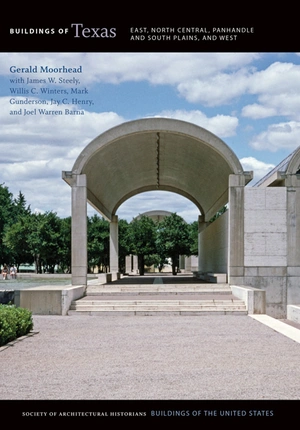
The River Crest Country Club was founded in 1911. After the second clubhouse burned, board member Richard Moncrief asked Philip Johnson to design a new clubhouse. Johnson declined but recommended the relatively unknown Houston firm Taft Architects, who were just gaining notice for their work. The three partners, John J. Casbarian, Danny Samuels, and Robert H. Timme, researched the history of clubhouse typology and designed this Postmodern Palladian structure. At the time, this was the largest commission that Taft had undertaken, and interior finishes are a bit spare and thin, largely painted plywood and drywall, with more emphasis given to exterior tile and detail work. The vaulted drywall ballroom at the second level has balconies and distant views in four directions. Interior design and furnishings were the work of New York City interior designer Mark Hampton. The new wing along the south on Crestline Road is by Ames Fender, the grandson of Wyatt C. Hedrick.








